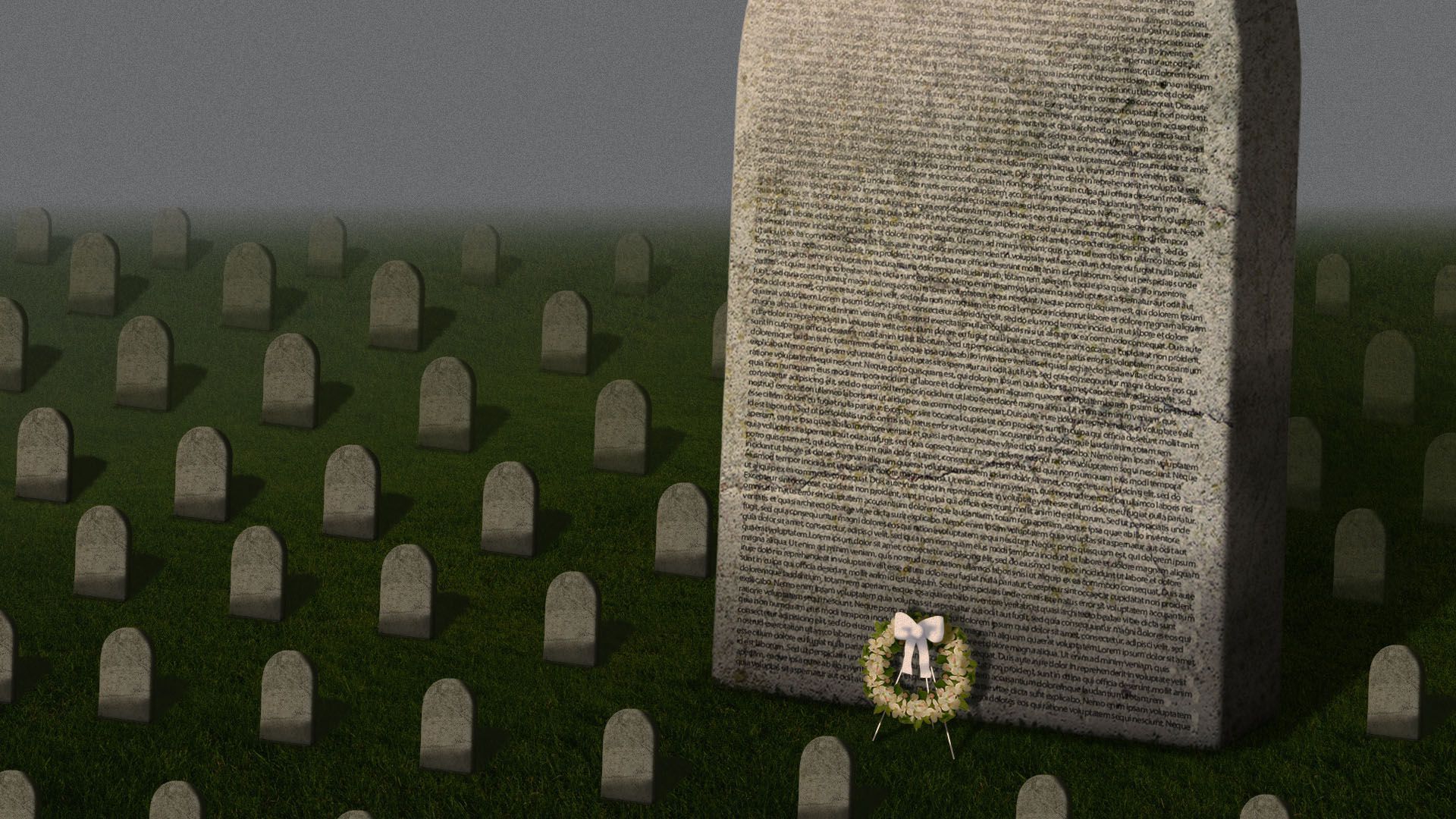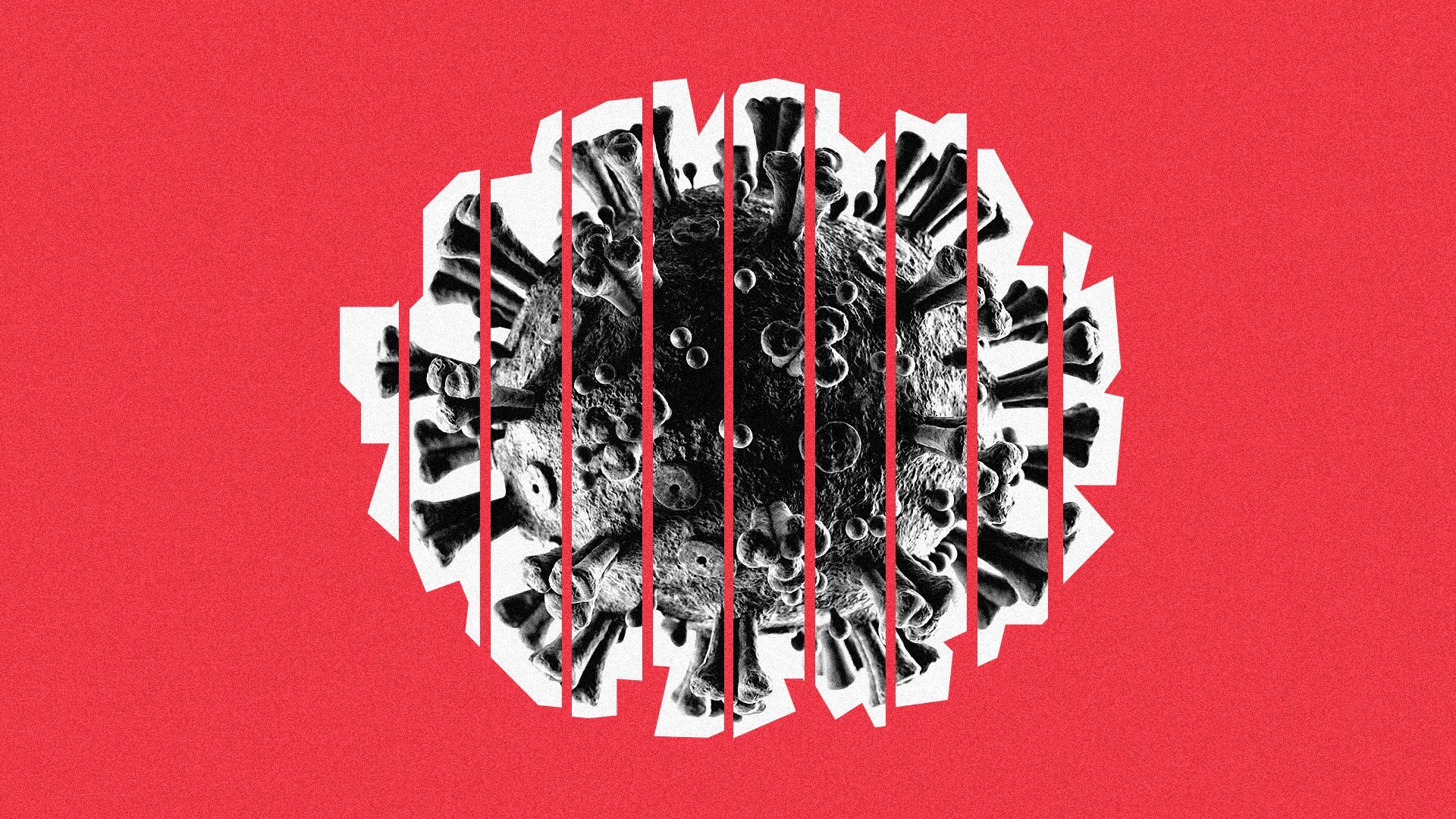| | | | | | | Presented By UnitedHealth Group | | | | Vitals | | By Caitlin Owens ·Nov 23, 2020 | | Good morning. Situational awareness: AstraZeneca and Oxford University announced this morning that their COVID-19 vaccine has up to 90% efficacy. Join me tomorrow at 12:30pm ET for a virtual event on the future of health equity featuring Inova Loudoun Hospital president Deborah Addo, Harvard T.H. Chan School of Public Health professor of health policy Robert J. Blendon and GE Healthcare United States and Canada president and CEO Everett Cunningham. Today's word count is 1,210, or a 5-minute read. | | | | | | 1 big thing: U.S. coronavirus hotspots far outpacing Europe's |  Data: CSSE Johns Hopkins University, Census Bureau, United Nations; Chart: Andrew Witherspoon/Axios America's coronavirus outbreak has surpassed Europe's. Why it matters: It wasn't long ago that public health experts were pointing to Europe as a warning sign for the U.S. But the U.S. now has a higher per capita caseload than the EU ever has during its recent surge. By the numbers: As of Saturday, 15 states had higher per capita caseloads, averaged over seven days, than the European country with the highest caseload — Luxembourg. - The U.S. overall saw 52.4 cases per 100,000 people. The EU saw 37.6 per 100,000 on Saturday, and peaked at 46.7 cases per 100,000 on Nov. 8.
The big picture: Europe's steady rise in coronavirus cases over the last couple of months prompted many countries to bring back lockdowns or other strict behavioral restrictions. - Meanwhile, in the U.S., some of the hardest-hit states — like Iowa — are just now adopting mask mandates, and airports over the weekend were packed with people traveling for Thanksgiving.
Yes, but: Cases in the hardest-hit states are starting to trend down, a sign that people are modifying their behavior on their own. What we're watching: There's no sign that the number of U.S. cases nationally is going to stop rising anytime soon, especially in the absence of strong federal or state restrictions. - Hospitalizations and deaths lag behind cases by a few weeks. That means that Europe likely has easier days ahead, while America's dark days are just getting started.
- In the U.S., today's overwhelmed hospitals will continue to keep getting hit with ever-growing caseloads for awhile.
Go deeper: See all U.S. states' and EU countries' per capita caseloads. |     | | | | | | 2. Trump sends a parting shot at pharma | | The Trump administration on Friday released a pair of drug pricing regulations that could significantly shake up the industry — if they survive inevitable lawsuits, and if the Biden administration chooses to keep them in place. Why it matters: The administration estimated that one of the proposals, which ties what Medicare pays for some drugs to what other wealthy countries pay, could save Medicare more than $85 billion over seven years. - The Most Favored Nation policy is set to begin in January, and would limit what Medicare Part B pays for 50 high-cost drugs to the lowest price paid in other similar countries.
The other regulation would eliminate rebates obtained by pharmacy benefits managers and Part D plans from drug companies, which the administration says will reduce out-of-pocket spending for patients and encourage lower drug list prices. - The rebate rule is set to take effect in January of 2022.
What they're saying: PhRMA president and CEO Stephen Ubl blasted the most favored nation policy in a statement, adding that "PhRMA is considering all options to stop this unlawful onslaught on medical progress." - Ubl said the organization is "hopeful" that the rebate rule will help seniors see savings.
The bottom line: Trump has launched a political hot potato at Biden in his final months of office. |     | | | | | | 3. Why we're numb to 250,000 coronavirus deaths |  | | | Illustration: Sarah Grillo/Axios | | | | The U.S. passed 250,000 confirmed deaths from COVID-19 this week, a figure that is truly vast — too vast, perhaps, for us to comprehend, Axios' Bryan Walsh writes. Why it matters: The psychic numbing that sets in around mass death saps us of our empathy for victims and discourages us from making the sacrifices needed to control the pandemic, while it hampers our ability to prepare for other rare but potentially catastrophic risks down the road. By the numbers: The sheer scale of the U.S. death toll from COVID-19 can be felt in the lengths media organizations have gone to try to put the numbers in perspective. 250,000 deaths is: - Ten times the number of American drivers and passengers who die in car crashes each year, according to CNN.
- More than twice the number of American soldiers who died in World War I, according to NPR.
- Enough to draw a vast hole in America's heartland, if the deaths had all been concentrated in one area, according to the Washington Post.
Even if we try our best to grasp mass death, we inevitably come up against cognitive biases, says Paul Slovic, a psychologist at the University of Oregon who studies human judgment and decision-making. - The biggest bias is scope neglect: as the scale of deaths and tragedy grows, our own compassion and concern fail to keep pace. As the title of one of Slovic's papers on the subject goes: "The more who die, the less we care."
Go deeper. |     | | | | | | A message from UnitedHealth Group | | Expanding and strengthening Medicaid to cover more people | | |  | | | | Medicaid provides high-quality, cost-effective health care to more than 70 million children, low-income adults and people with disabilities. Learn more about how expanding and strengthening Medicaid can cover more people and help achieve universal coverage. | | | | | | 4. A season of COVID uncertainty |  | | | Illustration: Aïda Amer/Axios | | | | The frightening, post-election coronavirus surge is making everything feel strange, different and unsettled all over again, Axios' Jennifer Kingson reports. Why it matters: With Thanksgiving canceled, doctors quitting their practices and grocers limiting purchase quantities (again), Americans have the ambient sense that our safety net is unraveling. Not only are things not returning to normal, they may not return to normal for a long time. The people and institutions we look toward for guidance and leadership — like elected officials and medical authorities — seem as flummoxed by the pandemic as we are. They issue new rules day by day (closing schools, restricting shopping, issuing curfews), yet look helpless and flailing as infections rise. - Our comforting touch points, like family get-togethers and holiday rituals, are suddenly off-limits.
Strangely, CEOs and corporate America have been serving as a rare anchor in this unmoored reality, attempting to provide some moral suasion and fueling the engine behind the stock market's rally. - Companies like Pfizer and Moderna are looking like the heroes of the day — though their vaccines can't come soon enough to allay our worst fears.
Economically, the nation is heading into uncharted territory, with COVID-related uncertainty obliterating all forecast attempts. - Politically, the standoff between President Trump and the rightfully elected new administration has left a vacuum.
- Socially, we feel isolated and trapped in our pandemic ruts, not even permitted to savor the promise of holidays we've been looking forward to.
Go deeper. |     | | | | | | 5. Tweets du jour | | My thought bubble: This Thanksgiving is going to look very different for a lot of us, and that's hard. But one thing I am very thankful for is that we now have a lot more to look forward to than we did a few weeks ago, and the end of this nightmare is finally in sight. |     | | | | | | 6. Catch up quick |  | | | Illustration: Aïda Amer/Axios | | | | The U.S. surpassed 12 million coronavirus cases on Saturday, per data from Johns Hopkins University, the second time the country has recorded more than 1 million new cases in less than a week. Moncef Slaoui, the White House's top scientific adviser to Operation Warp Speed, told Chuck Todd on "Meet the Press" on Sunday that the Trump administration's efforts to accelerate the development of a coronavirus vaccine is "isolated from a political environment" and that a change in administration "doesn't, frankly, make a difference" on its efficacy. The Food and Drug Administration announced Saturday evening it has granted emergency use authorization for Regeneron Pharmaceuticals' antibody cocktail given to President Trump to treat his COVID-19 infection last month. More than 1 million people flew through U.S. airports on Friday, according to TSA data, the second highest number since the coronavirus pandemic began hit the U.S. in mid-March. Statistical modelers are facing one of their toughest challenges yet as they try to help figure out who should get a vaccine first, Undark reports. Members of the Texas National Guard have been deployed to El Paso County to support the region's morgue operations, as the county undergoes a "spike in deaths" related to COVID-19, El Paso Mayor Dee Margo announced. England will impose a strengthened version of an earlier three-tiered system of local restrictions to curb COVID-19 when the national lockdown ends Dec. 2, Prime Minister Boris Johnson's office has announced. |     | | | | | | A message from UnitedHealth Group | | How Medicaid can cover 9 million more people | | |  | | | | Expanding and strengthening Medicaid is part of the solution to achieve universal coverage: - Expanding Medicare in the remaining 12 states would cover 2 million more people.
- Passively enrolling those eligible for Medicaid would cover 7 million more people.
Learn how to expand access to care. | | | | | | Axios thanks our partners for supporting our newsletters.
Sponsorship has no influence on editorial content. Axios, 3100 Clarendon Blvd, Suite 1300, Arlington VA 22201 | | | You received this email because you signed up for newsletters from Axios.
Change your preferences or unsubscribe here. | | | Was this email forwarded to you?
Sign up now to get Axios in your inbox. | | | | Follow Axios on social media:    | | | | | |
No comments:
Post a Comment